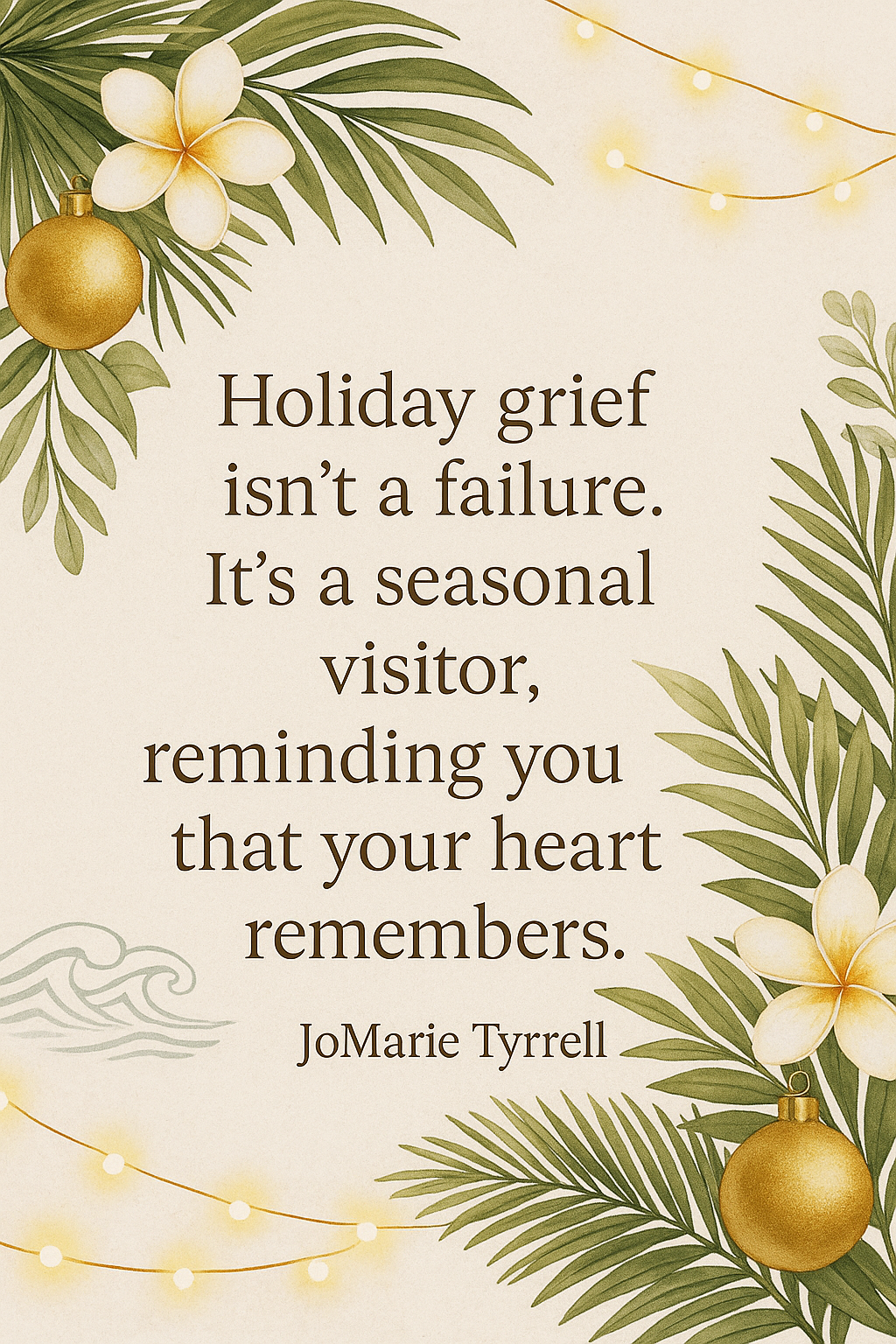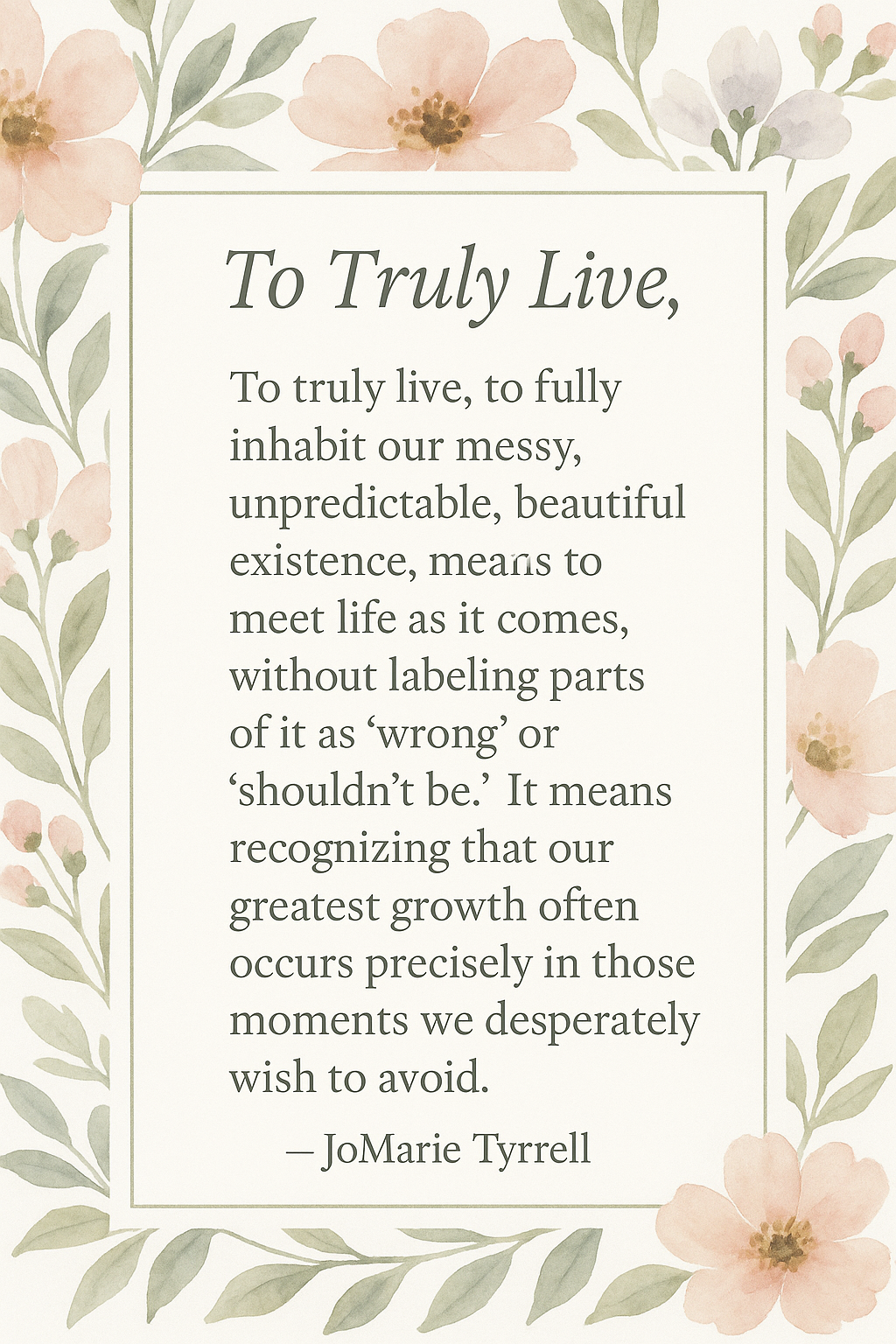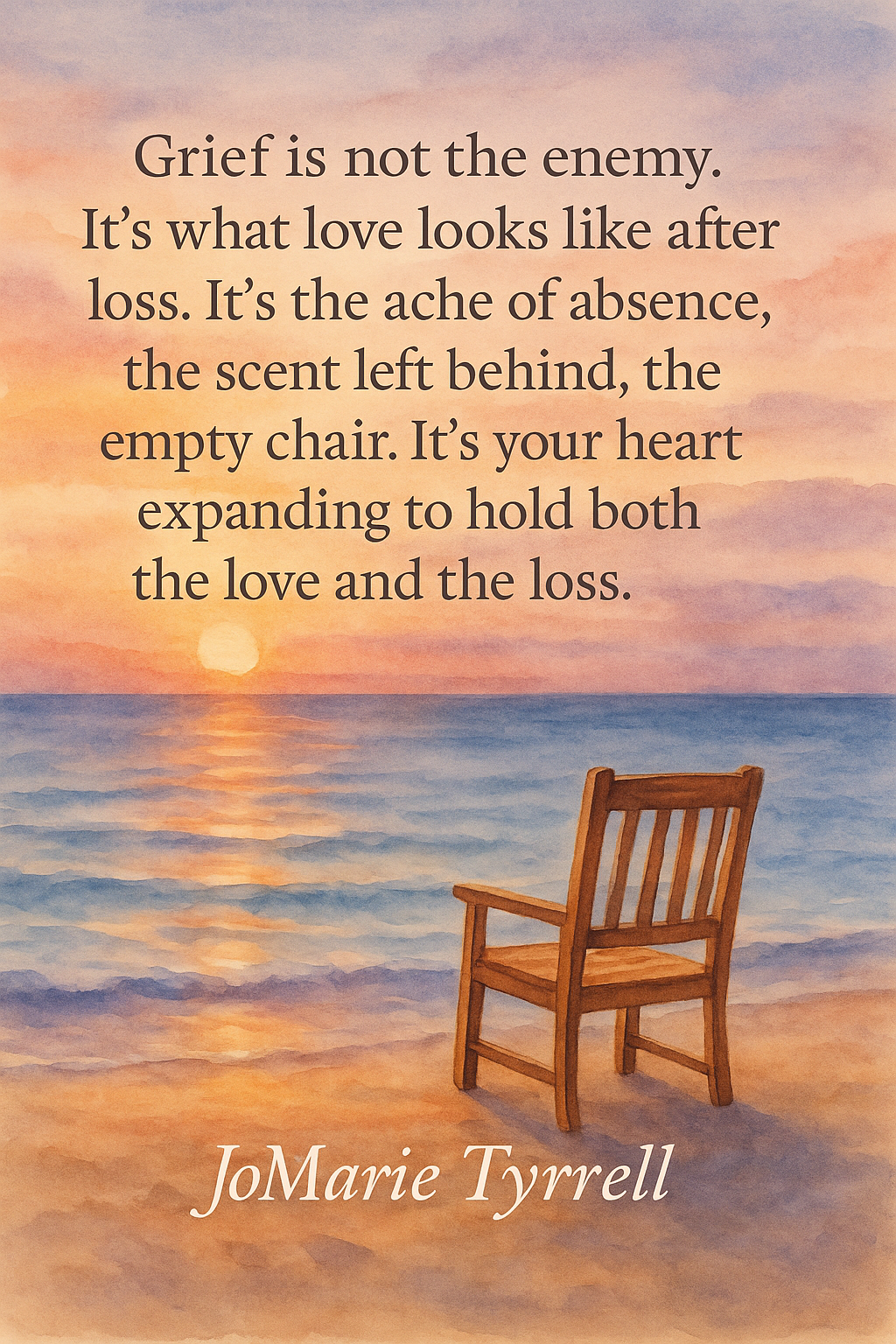The holidays are in full swing. As I walked around our local hardware store, surrounded by various sizes of ready-made Christmas trees, with Mariah Carey blasting through the speakers, I am struck by how festive the vibe in the air felt. Surprisingly, as I sang along to Mariah Carey, under my breath, I felt a small tug of sadness or melancholy in my heart. You see the holiday season can tend to act as an emotional amplifier. Where there is love, we feel tenderness. Where there is loss, we feel the ache more sharply. Perhaps it’s the change of temperature, the smell of pine or Mariah Carey belting out the joys of the seasons, the holiday seasons tend to stir up implicit or long forgotten memories and grief. Ironically it is the same festive holiday vibe of seeing families shop together, holiday parties with friends and co-workers, Hallmark holiday rom-coms and family get-togethers that can bring up grief. You begin missing someone who has passed. Missing a relationship that changed (divorce, estrangement, distance) Missing an imagined future, the holiday you thought you’d have: Feeling lonely even while surrounded by others. Simply said, the holidays can be stir up grief. We miss who we were with them.We miss the feeling of being seen or known. We miss the role we played in that connection. We miss the meaning that relationship brought into our life.
Grief is multi-layered, it’s about identity, memory, and belonging.
And we all deal with our grief differently some try to power through, stay productive, or hide sadness to avoid slowing down; others over-gives as a way to avoid feeling their own missing; some feel grief deeply and may romanticize the melancholy; some may numb or “go blank” instead of engaging grief; Or others might worry about being alone or fear future losses.
During this holiday season you don’t have to choose between holiday festivities or grief, you can do both. That’s part of the magic of being human. We can laugh with friends one second and tear up when we miss a loved one. Holding both expands your capacity rather than diminishing anything. Below are some suggestions for doing just that
A small ritual (lighting a candle, writing a note, creating a place setting).Understanding that meaning-making is a psychological resilience skill.
Naming the person out loud, even briefly.
Giving yourself permission to step away from festivities when needed.
“Micro-honoring”: 60-second acknowledgments to reset the nervous system.
Reach out to a friend.
Speak the loved one’s name.
Leave room for silence.
Let softness come in wherever it can.
Grief returning doesn’t mean you’re “back at the beginning.”
It may mean love still lives in you. Holiday grief is often a seasonal guest, not a regression.













